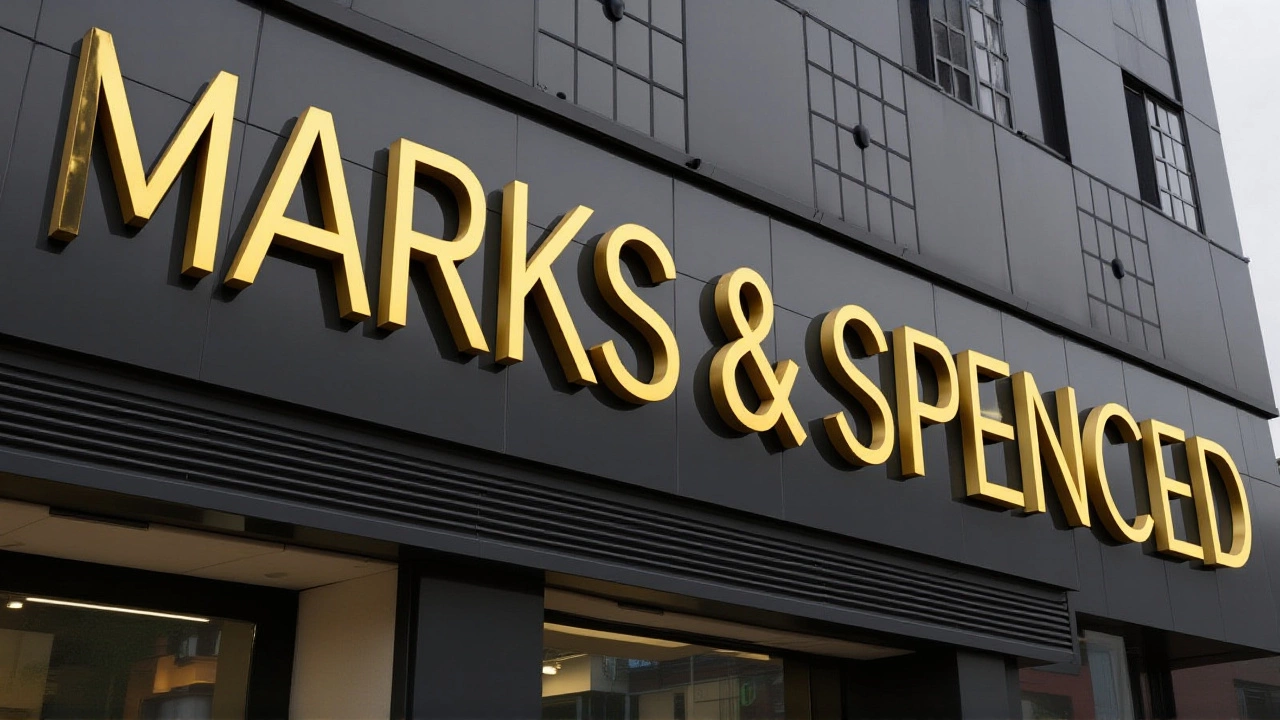When Food Standards Agency issued Allergy Alert FSA‑AA‑2025 on 15 October 2025, it set off a nationwide recall of a beloved snack.
Background to the recall
The alert centred on Marks & Spencer Group plc, the British retailer founded in 1884 by Michael Marks and Thomas Spencer. Their M&S Milk Chocolate Honeycomb bar, sold in a 120 g pack, was flagged for containing undeclared peanuts – a serious oversight for anyone with a peanut allergy.
Here’s the thing: the affected batch, lot 5242, carries a best‑before date of 12 May 2026. The problem isn’t a stray peanut that slipped in; it’s a labeling failure that leaves allergic shoppers in the dark.
Details of the affected product
The honey‑comb‑lined chocolate bar has been a staple on M&S shelves for years, especially in the London flagship store where it first launched. The recall covers every store across England, Wales and Scotland, and it also stretches to outlets in Malta that stock the British chain’s imports.
According to the FSA’s risk assessment, "This product may contain peanuts making it a possible health risk for anyone with an allergy to peanuts," the agency wrote. The alert cited the EU Regulation No 1169/2011 on allergen labeling – still enforced in the UK via the European Union (Withdrawal) Act 2018.
Regulatory response
Within hours of the alert, the FSA instructed retailers to pull the product from shelves and to allow customers to return any purchased bars for a full refund, no receipt required. "Our priority is public safety," said Dr. Alison Wolf, director of food safety at the agency. "Undeclared allergens are a clear and present danger, especially for peanuts, which trigger severe anaphylaxis in roughly 2 % of UK adults and 5‑8 % of children, according to NHS data."
The agency’s Allergy Alert system, now at its 61st notice this year, only activates when there is "a risk to consumers because the allergy labelling is missing or incorrect."
Impact on consumers
Consumers have been urged to check the lot number and best‑before date on any honeycomb bars they may still have at home. If the packaging reads “Lot 5242” and the date is before 12 May 2026, the safest move is to return it to any M&S store – there are 1,013 UK outlets as of 2025 – or discard it.
Allergy charities, including the British Allergy Foundation, echoed the warning on social media, reminding people that accidental exposure can lead to life‑threatening reactions. "We’ve seen cases where a single peanut caused hospitalization," a spokesperson noted, "so the precautionary approach is absolutely justified."
Industry and supply‑chain implications
Cross‑contamination during manufacturing is the most common culprit in such incidents. Chocolate production lines often handle nut‑laden and nut‑free batches on the same equipment. If cleaning protocols fall short, trace amounts can linger – a scenario that appears to have unfolded here.
Marks & Spencer has not released a detailed root‑cause analysis, but industry analysts predict a review of their allergen control procedures. "Retailers will likely tighten supplier audits and invest in dedicated nut‑free lines," said food‑industry consultant Emma Clarke of FoodSafe Advisory.
What’s next?
The recall remains active with no set end date. The FSA will keep the alert live until all affected stock is accounted for, and it encourages shoppers to subscribe to its alerts for future updates.
Marks & Spencer promised to reimburse any returned items and to replace the product with a properly labelled version once the issue is resolved. In the meantime, the retailer has launched a dedicated FAQ page on its website to help confused customers.
Frequently Asked Questions
Which M&S Honeycomb bars are affected?
Only the 120 g Milk Chocolate Honeycomb bars bearing lot 5242 and a best‑before date of 12 May 2026 are part of the recall. All other sizes and batches are safe to eat.
What should I do if I have the product at home?
Check the packaging for the lot number and date. If they match the recalled details, return the bar to any Marks & Spencer store for a full refund – you don’t need a receipt – or discard it safely.
Why were peanuts not listed on the ingredient label?
The FSA says the omission was a labeling error, not a deliberate omission. Such mistakes usually stem from cross‑contact during production and a failure to update the allergen declaration before the batch left the factory.
How many people are at risk from peanut allergies in the UK?
NHS data estimate that around 2 % of adults and between 5 % and 8 % of children in the UK live with a peanut allergy, meaning millions could be affected by an undeclared allergen.
Will this recall affect other M&S products?
At present, only the specific Honeycomb chocolate bar is subject to the recall. The retailer says no other products have been flagged, but it is reviewing its entire range for similar risks.
